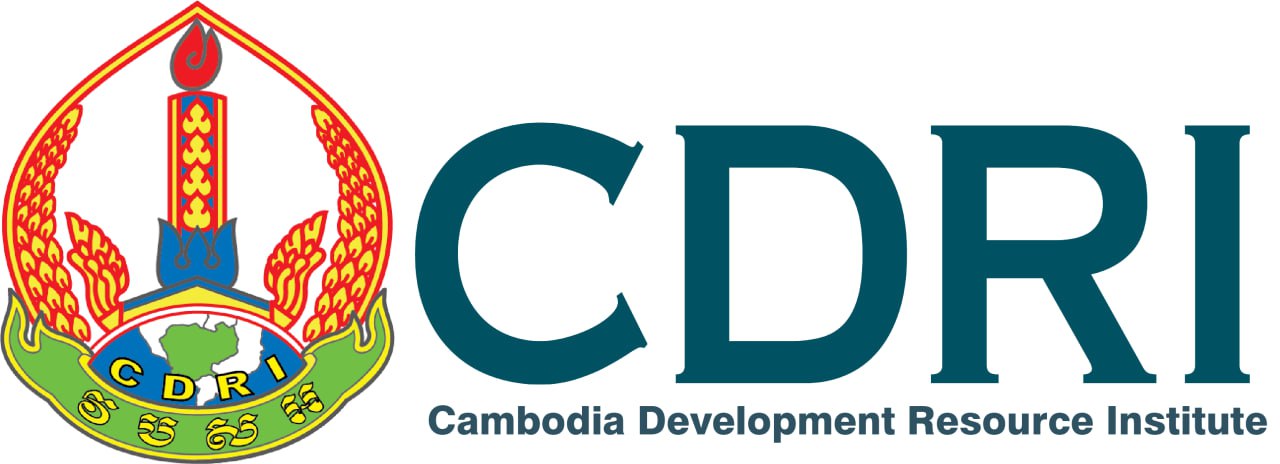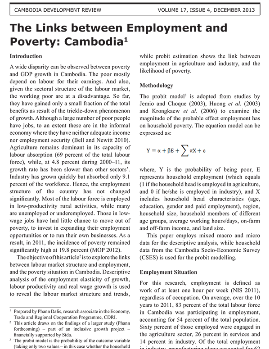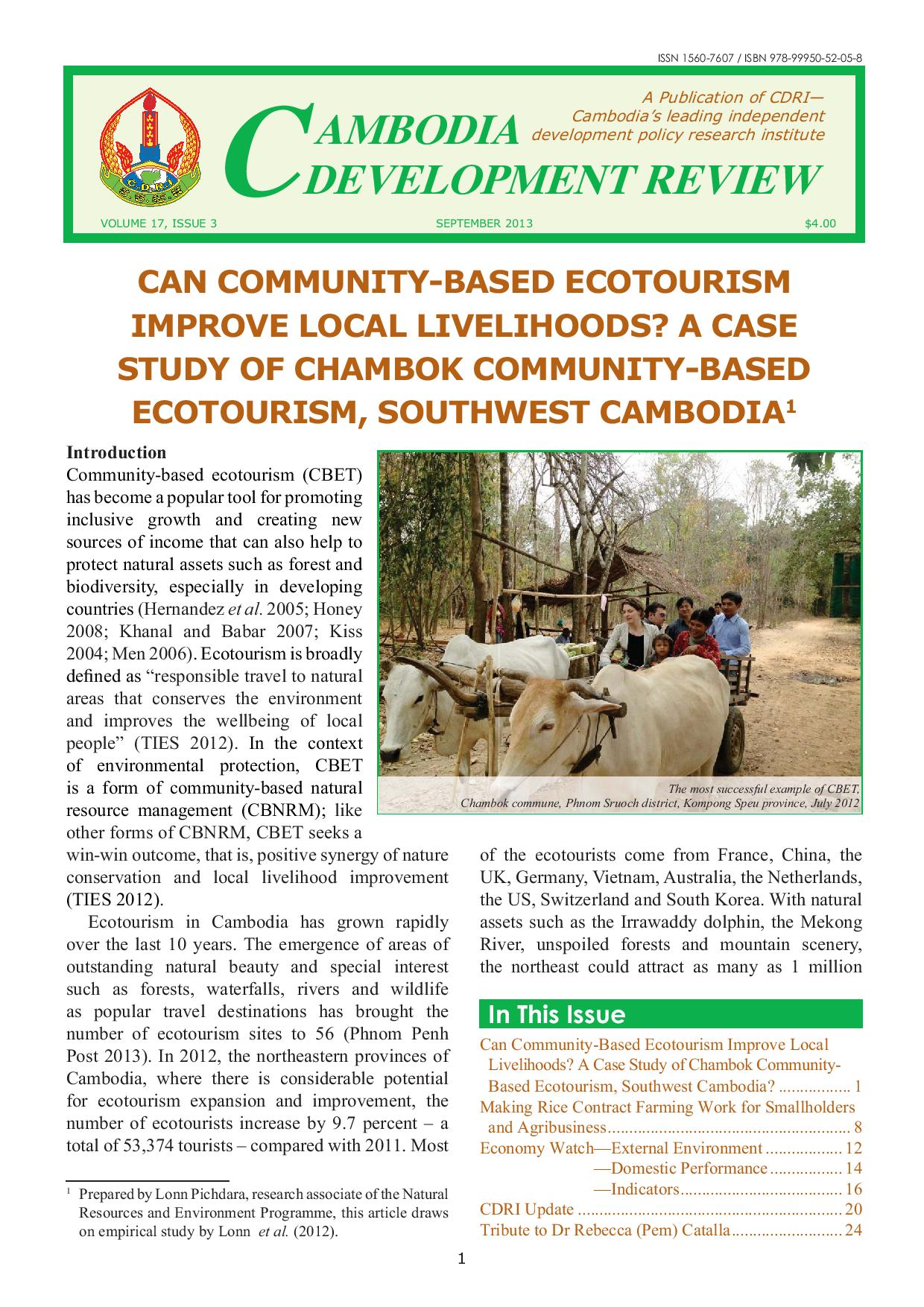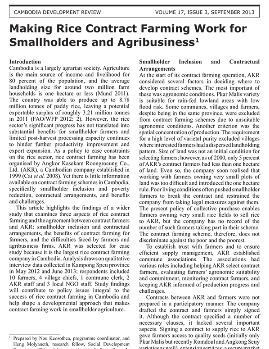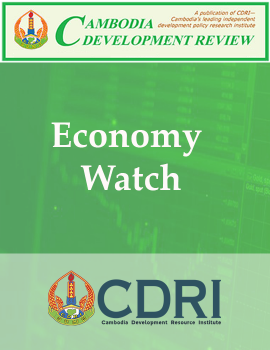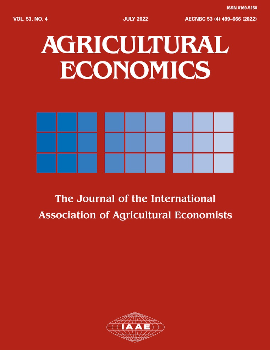
Irrigation water productivity in Cambodian rice systems
Knowledge of the marginal productivity of water is crucial for decisions about its allocation between uses, which is particularly important in the context of increasing competition for water. Using primary, plot-level panel data, this article estimates the marginal productivity of water from supplementary irrigation in lowland rice systems in Cambo...
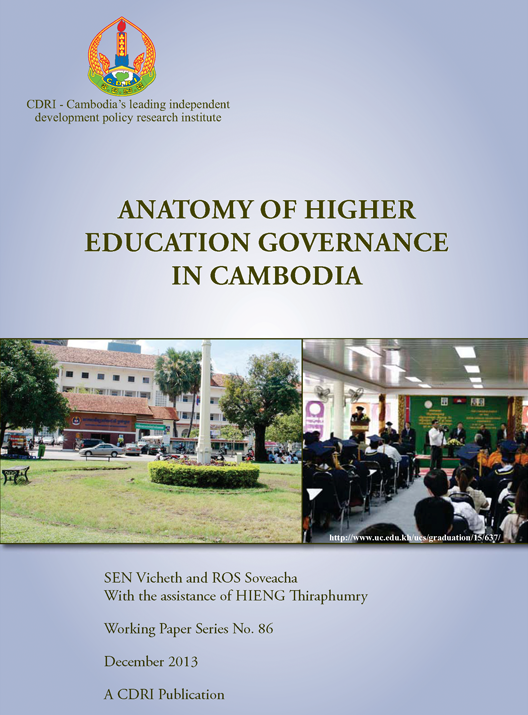
Anatomy of Higher Education Governance in Cambodia
Higher education plays a fundamental role in enhancing the intellectual capacity essential to creative leadership in all fields of national activity and in providing a skilled workforce able to respond to changing labour market demands. All citizens, and particularly the poor, need the opportunity and the skills to participate productively in the l...
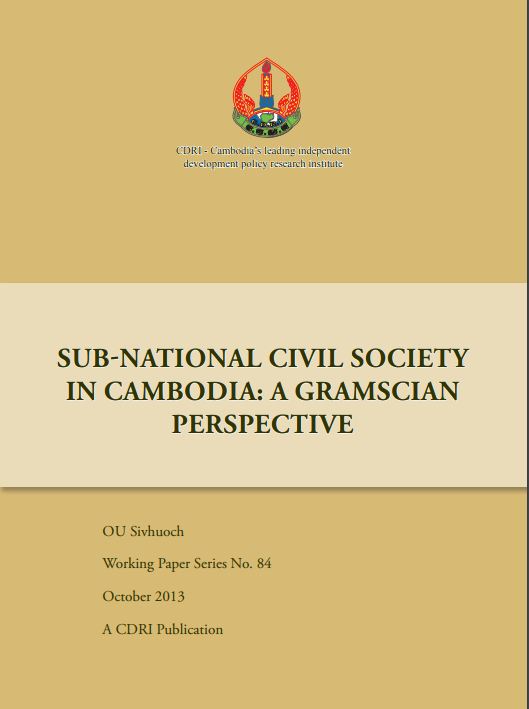
Sub-National Civil Society in Cambodia: A Gramscian Perspective
Several authors (particularly Laundau 2008; Henke 2011) label Cambodian national civil society as a sphere that is neither apolitical nor autonomous, but influenced or co-opted by and blurred with the state. They posit that a Gramscian perspective is relevant to interpreting civil society in the country. This article suggests that the application o...
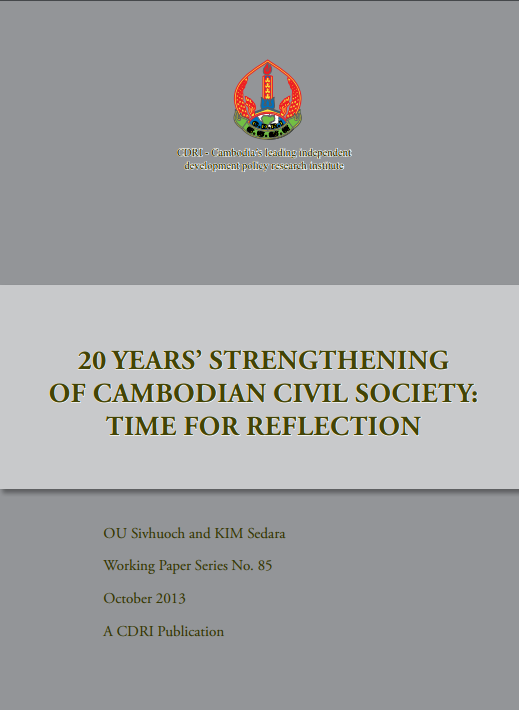
20 Years’ Strengthening of Cambodian Civil Society: Time for Reflection
In the 1980s and 1990s a large number of NGOs emerged in Cambodia, primarily in response to donors’ agendas on strengthening civil society to curb repressive developing country governments and support a broad democratisation process. Over the last 20 years, donor money has been concentrated on funding a small group of NGOs, mostly located in the co...

Cambodian Agriculture: Adaptation to Climate Change Impact
Cambodia has been identified as one of the most vulnerable countries to climate change, given the predicted changes in temperature and precipitation, the share of labor in agriculture, and the country’s low adaptive capacity due to widespread poverty. In this study, we use climate data from four general circulation models (GCMs) to evaluate the imp...
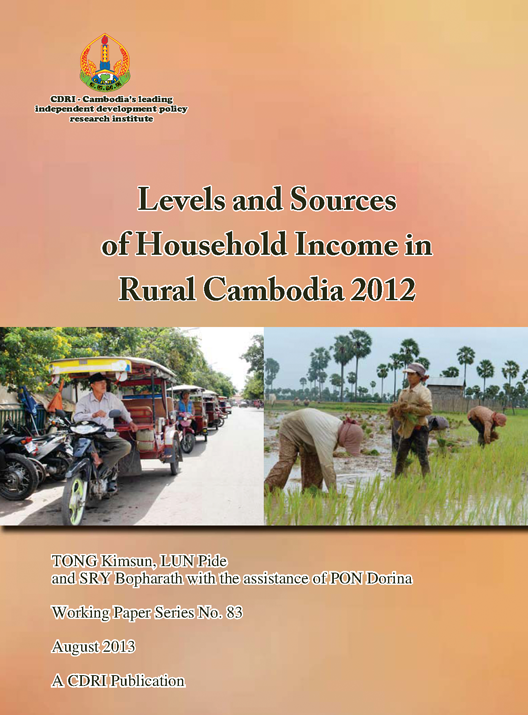
Levels and Sources of Household Income in Rural Cambodia 2012
Households in Cambodia derive their income mainly from non-farm self-employment, salaries and wages, agricultural crops and other activities. On average, non-farm self-employment income amounts to 29 percent of total income, but its share was largest during the oil and food price increases and the global financial crisis that occurred in...
